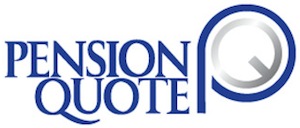Your annual meeting with your tax professional shouldn’t just be about filing returns—it should be a strategic session focused on minimizing taxes and preserving wealth. The right questions can uncover significant savings opportunities and ensure you’re taking advantage of every available strategy. Here’s a comprehensive guide to the key questions that can help maximize your tax efficiency and protect your financial future.
Income Tax Optimization Questions
Tax Rate Management
“What’s my effective tax rate this year, and how does it compare to previous years?” Understanding your true tax burden helps identify trends and opportunities. If your rate is climbing, discuss strategies to manage future income timing or consider tax-deferred investments.
“Should I accelerate or defer income this year based on expected future tax rates?” With potential changes to tax law on the horizon, timing income can be crucial. Your advisor should analyze whether it makes sense to realize gains now or push income into future years.
“Am I maximizing all available retirement account contributions?” This includes 401(k), IRA, SEP-IRA, and other qualified plans. Don’t forget catch-up contributions if you’re over 50, and consider whether Roth conversions make sense for your situation.
Investment Tax Strategies
“How can I optimize my investment portfolio for tax efficiency?” Discuss tax-loss harvesting opportunities, the placement of tax-inefficient investments in retirement accounts, and whether your current asset allocation is tax-optimized.
“What’s my capital gains exposure, and should I consider realizing losses to offset gains?” Review unrealized gains and losses across all accounts. Consider whether municipal bonds or other tax-advantaged investments align with your tax bracket.
“Are there any wash sale rules affecting my investment strategy?” Ensure your tax-loss harvesting doesn’t inadvertently trigger wash sale rules that would disallow losses.
Business and Self-Employment Questions
Business Structure Optimization
“Is my current business structure still optimal for tax purposes?” Entity selection can significantly impact taxes. S-Corp elections, LLC structures, or other entity types might offer better tax treatment as your business grows.
“What business expenses am I missing, and how can I better document deductions?” Review home office deductions, vehicle expenses, travel costs, equipment purchases, and professional development expenses. Ensure proper documentation for all claims.
“Should I consider qualified small business stock (QSBS) for potential tax benefits?” If you own a qualifying small business, QSBS can provide substantial federal tax exclusions on gains—up to $10 million or 10 times your basis.
Self-Employment Considerations
“How can I minimize self-employment tax?” Explore strategies like S-Corp elections for LLCs, optimizing salary versus distribution splits, or considering defined benefit plans for high earners.
“Am I taking advantage of all available business retirement plans?” SEP-IRAs, Solo 401(k)s, and defined benefit plans can provide substantial tax-deferred savings for self-employed individuals.
Estate and Gift Tax Planning
Annual Gifting Strategies
“How much can I gift tax-free this year, and who should receive these gifts?” Understand annual exclusion limits ($19,000 per recipient in 2025) and consider strategic gifting to children, grandchildren, or trusts.
“Should I consider paying someone’s tuition or medical expenses directly?” Direct payments to educational institutions or medical providers don’t count against gift tax exclusions and can be powerful wealth transfer tools.
Estate Tax Considerations
“Given my current net worth trajectory, will my estate face federal or state estate taxes?” Project your estate’s future value, including business interests, real estate appreciation, and investment growth. Don’t forget life insurance proceeds.
“Should I take advantage of the current high estate tax exemptions before they potentially sunset in 2026?” With exemptions potentially dropping in half after 2025, discuss whether large gifts or sophisticated planning strategies make sense.
“How does my state’s estate tax situation affect my planning?” Thirteen states have their own estate taxes, often with much lower exemption thresholds than federal limits.
Family and Education Planning
Education Funding
“What’s the most tax-efficient way to fund my children’s or grandchildren’s education?” Compare 529 plans, Coverdell ESAs, and UTMA/UGMA accounts. Consider state tax deductions for 529 contributions.
“Should I consider changing 529 plan beneficiaries to optimize tax benefits?” Recent law changes allow 529 funds to be rolled to Roth IRAs under certain conditions, expanding planning opportunities.
Family Tax Strategies
“How can we optimize taxes across our entire family?” Consider income shifting strategies, kiddie tax implications, and whether family members in lower tax brackets should hold certain investments.
“Should we file separately or jointly, and how does this affect our overall tax picture?” Run the numbers both ways, especially if one spouse has significant medical expenses, miscellaneous deductions, or student loan interest.
Retirement and Distribution Planning
Retirement Account Management
“What’s my required minimum distribution (RMD) strategy?” For those 73 and older, ensure RMD compliance while minimizing the tax impact. Consider qualified charitable distributions for those charitably inclined.
“Should I consider Roth conversions, and if so, how much?” Analyze whether converting traditional IRA funds to Roth makes sense, particularly in lower-income years or before RMDs begin.
“How should I optimize Social Security claiming strategies for tax purposes?” Social Security benefits can be partially taxable depending on your other income. Coordinate claiming strategies with overall tax planning.
Health Savings Accounts
“Am I maximizing Health Savings Account (HSA) contributions and benefits?” HSAs offer triple tax benefits and can serve as supplemental retirement accounts after age 65.
Advanced Planning Strategies
Tax Law Changes
“What tax law changes should I be aware of, and how do they affect my planning?” Stay informed about proposed legislation, sunset provisions, and regulatory changes that could impact your tax situation.
“Should I consider opportunity zone investments or other specialized tax strategies?” Evaluate whether opportunity zones, conservation easements, or other advanced strategies align with your investment goals and risk tolerance.
State Tax Planning
“Should I consider changing my state residency for tax purposes?” For high earners, state income tax differences can be substantial. Understand residency requirements and implications of any potential moves.
“How do state and local tax (SALT) deduction limitations affect my planning?” With the $10,000 SALT cap, consider strategies like charitable deductions, business expense optimization, or timing of payments.
Documentation and Compliance
Record Keeping
“What records should I maintain throughout the year to support my tax positions?” Ensure proper documentation for all deductions, basis calculations, and potential audit defense.
“Are there any areas where my documentation could be improved?” Proactive record-keeping prevents problems and maximizes deduction opportunities.
Audit Protection
“What are my audit risks, and how can I minimize them?” Understand which deductions or positions might trigger scrutiny and ensure proper substantiation.
“Do you recommend audit insurance or representation services?” Consider whether audit protection services provide value for your situation.
Questions About Your Professional
Service Optimization
“Are there additional services you offer that could benefit my situation?” Many firms offer financial planning, estate planning, or business consulting that could provide additional value.
“Who else should be part of my advisory team?” Ensure coordination between your tax professional, financial advisor, estate planning attorney, and insurance specialists.
“How often should we meet, and what should I prepare for each meeting?” Establish regular communication schedules and preparation expectations to maximize the value of your relationship.
Proactive Planning Questions
Future Opportunities
“What should I be thinking about for next year’s tax planning?” Get ahead of opportunities like retirement plan contributions, investment timing, and strategic business decisions.
“Are there any deadlines I should be aware of beyond the filing deadline?” Understand quarterly estimated tax dates, retirement contribution deadlines, and other time-sensitive opportunities.
“What would you do if you were in my position?” Get your professional’s perspective on priorities and strategies they would pursue with similar circumstances.
Making the Most of Your Tax Professional Relationship
The key to maximizing your tax professional relationship is preparation and ongoing communication. Before each meeting:
- Organize your financial information comprehensively
- Prepare specific questions about your situation
- Share any major life changes or financial events
- Discuss your goals and concerns openly
Remember that tax planning is a year-round process, not just an annual filing requirement. The best tax professionals will help you implement strategies throughout the year and coordinate with your other advisors to optimize your overall financial picture.
Your tax professional should be a strategic partner in building and preserving wealth, not just someone who prepares your returns. By asking these focused questions annually, you ensure that relationship delivers maximum value and keeps you ahead of changing tax landscapes.
The investment in professional tax advice and planning almost always pays for itself many times over through tax savings and avoided penalties. Make sure you’re getting the full benefit of that relationship by staying engaged and asking the right questions.
For high-net-worth business owners, strategic tax planning through qualified retirement plans offers powerful opportunities to reduce tax liability while building wealth for retirement. This guide explores key IRS-approved strategies that combine significant tax benefits with retirement security. Contact PensionQuote and we’ll design a tax strategy that makes a substantial impact in lowering your tax burden.

